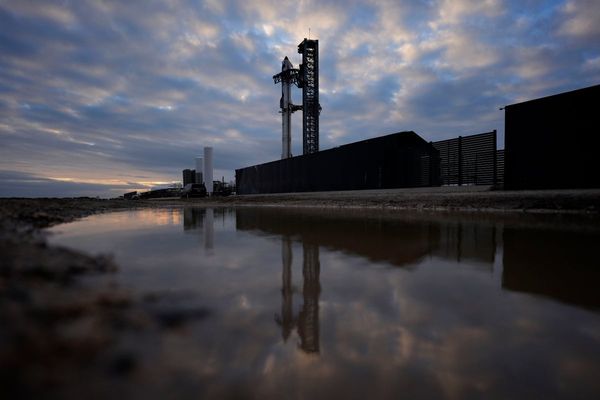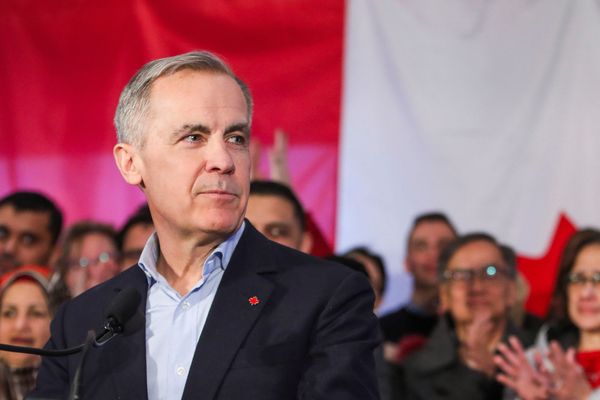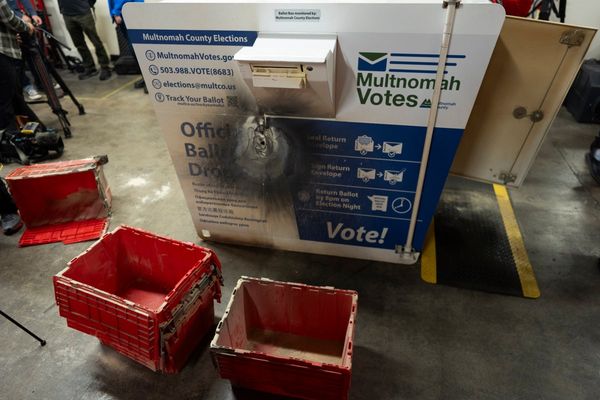
The massive explosion that rocked Beirut and destroyed much of the Lebanese capital’s port last week threatens to have disastrous consequences for the roughly 1.5 million Syrian and Palestinian refugees who have long relied on humanitarian aid in the country, according to officials and aid workers who spoke to Foreign Policy.
Lebanon hosts one of the highest populations of refugees in the world. The blast last week came on the heels of months of civil unrest, an economy on the brink of collapse if not beyond it, and a resurgent coronavirus pandemic. Experts and humanitarian workers say it further imperils Lebanon’s refugee population, half of whom lived in deep poverty before all the crises began. More than half of Palestinian refugees are unemployed, and over two-thirds of Syrian refugees in Lebanon live below the poverty line.
“They were already vulnerable, not just because of their situation as refugees but also because of the spiraling economic crisis and coronavirus crisis and measures that had impacted the whole country,” said Ruth Hetherington, the Middle East spokesperson for the International Committee of the Red Cross. “For everybody, this catastrophe layers more misery on top of already very deep crises.”
Many refugees from the nearly decadelong civil war in Syria are spread out across Lebanon’s farmlands, but without the prospect of a flow of international aid to help them in Lebanon, things will get worse—for them and for their host country.
“It’s hard to see how they can absorb any more, and it will be increasingly difficult to take care of those they have been hosting,” said Andrew Miller, a former National Security Council director during the Obama administration. “It really does make the absence of an off-ramp to these conflicts and the return of refugees a ticking time bomb, at least from Lebanon’s perspective,” said Miller, now the deputy director for policy at Project on Middle East Democracy.
The Lebanese government had already sought to repatriate refugees in recent years, despite lingering dangers in their home countries. Now, some fear that Lebanon, faced with no money, little food, and a massive reconstruction bill, will take it out on that vulnerable population.
“The situation for a full-fledged citizen in Lebanon was already extremely dire,” said Bachir Ayoub, a Beirut-based expert with the humanitarian organization Oxfam. “You can only imagine the impact it would have on the refugee community.”
The biggest immediate problem in the wake of the explosion is food, at a time when prices for food and other goods had nearly doubled in Lebanon over the past year. The Beirut port, an entry point for much of what Lebanon consumes and a key hub for other shipments throughout the region, will be inoperable for at least a month, a United Nations spokesperson said. Lebanon imports 80 to 85 percent of its food, and one of its largest grain silos was among the wreckage.
U.N. and humanitarian officials also fear the knock-on effects of the explosion on the aid pipeline to Syria, where over 11 million people rely on international aid to survive as the country’s civil war grinds into its ninth year.
The Beirut port “was one of the main logistical hubs” through which the U.N. and other aid organizations sent supplies to Syria, Ayoub said. Now humanitarian officials are scrambling to find ways to keep the supply chain open as the dust settles on the destroyed port.
Aid officials are looking to Lebanon’s other main port, Tripoli, where aid will continue to arrive via air freight or ship. But it’s unclear whether the U.N. and other aid organizations that had used Beirut’s port as a gateway to provide aid to the region can do the same from Tripoli, which has only about one-third the capacity of the port in Beirut.
Another problem is the lack of a proper government in Lebanon, after the entire leadership resigned en masse on Monday. The resignation of Prime Minister Hassan Diab and his entire cabinet won’t stop the flow of humanitarian aid into the country, but it could make efforts to unlock long-term international aid pledges more challenging, experts told Foreign Policy. Diab’s resignation means that his government will have caretaker status, giving it just enough legal power to run day-to-day functions but not allowing it to enact reforms demanded by Western nations.
“The Lebanese financial system is completely broken, you cannot transfer money in and out of the country,” said Heiko Wimmen, a project director for the International Crisis Group overseeing Iraq, Syria, and Lebanon. “The banks are completely bankrupt.”
So far, Lebanon has seen a muted response from the United States and the international community. A French-backed online conference over the weekend garnered nearly $300 million in donations, well short of the $15 billion in damage wreaked by last week’s blast, and potential contributors have pushed for reforms to Lebanon’s government, accused of endemic corruption.
The U.S. Embassy in Beirut reported on Tuesday that the Trump administration had so far provided $2 million in food and medical supplies. But the Trump administration, which supplies hundreds of millions of dollars annually in military and economic aid to Lebanon, never embraced the Diab government, and has called for reforms before pitching in major contributions. The National reported that a U.S.-led delegation to the country will make the push for an independent government and other reforms when it visits the country later this week.
Another potential hurdle to more aid from Washington is the Trump administration’s antipathy to the United Nations.
“They’re deeply distrustful of the U.N. Their preference is to provide aid bilaterally or through orgs that are not part of the U.N. structure,” Miller said. “Unless you already have the mechanisms in place to provide aid, you have to build them from scratch.”
If there’s one tiny silver lining to the short-term government vacuum, aid experts say, it’s an easing of restrictions that normally apply to imported goods. Lebanon, for instance, used to reject medicine that had expiration dates more than a year away. That restriction may be lifted, allowing for the import of medicines a little closer to expiration.
“One thing we want to make sure we do is obviously take advantage of any relaxation of some of the restrictions but also make sure that we’re still sending in quality and relevant and needed goods,” said Sean Carroll, the president and CEO of the humanitarian organization Anera. He suspects that there will be an even greater reliance on outside aid due to the country’s ongoing political strife and economic tailspin.
At least 43 Syrian workers were among the victims of the blast, which killed more than 200 people and wounded thousands, and many refugee families who lived along the industrial neighborhoods near the port have seen their homes and savings destroyed. Despite these setbacks, neighboring Palestinian refugee camps have reportedly opened their hospitals to outside cases, and residents within these camps have reportedly come in to help with cleanup.
“Up until now, we don’t know their names and stories. They are victims as much as everyone else,” said Sawssan Abou-Zahr, an independent journalist based in Beirut whose home was destroyed in the blast.
For Abou-Zahr, the blast, caused by explosive chemicals left for years in a portside warehouse, is a punctuation mark to years of government neglect and misrule that have suddenly gone from making daily life unmanageable to making it deadly.
“I despise—and you can quote me on this—I despise every single one among this rotten political system. Every single one,” Abou-Zahr said. “Perhaps COVID-19 will not kill us, but they will kill us.”







